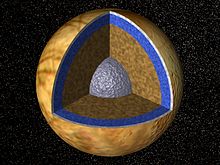
From philosopher Tim Mulgan at Aeon:
In academic philosophy today, an interest in extraterrestrial life is regarded with some suspicion. This is a historical anomaly. In Ancient Greece, Epicureans argued that every possible form of life must recur infinitely many times in an infinite universe. In the 17th, 18th and 19th centuries, as modern astronomy demonstrated that our Earth is just another planet and our Sun just another star, the default hypothesis among informed observers was that the Universe is filled with habitable planets and intelligent life. One principal argument for this ‘pluralism’ was philosophical or theological: God (or Nature) does nothing in vain, and therefore such a vast cosmos could not be home to only one small race of rational beings.
Yeh. Then along comes science and demands that we prove it.
We know that life has emerged once. Why should it be so momentous to learn that it has emerged twice? The reason is that finding life elsewhere would radically change our picture of the Universe. At any point in time, humans will have explored only a tiny fraction of our galaxy, let alone the whole Universe. If life has emerged only once in that small sample, then it is possible that life on Earth is unique. (We might then use anthropic reasoning to explain why we inhabit the Universe’s only inhabited planet: where else could observers find themselves?) But suppose we discover that life has emerged twice within our tiny sample – once on Earth, then again somewhere else. It would follow that life must have emerged a vast number of times across the galaxy. The discovery of independently emerging life would thus teach us that life is ubiquitous. And that discovery could have very significant implications. (The restriction to ‘independently emerging’ life is necessary because life found on meteors, asteroids, Mars or the Moon might have the same origin as life on Earth.)
No, that wouldn’t necessarily follow unless a number of other premises were granted. We could find a square planet or even two, but that would not make square planets ubiquitous. We need to additionally specify why they should be. (Unless, of course, we are sneaking in a concept of a multiverse, in which case we can assume anything we like and somewhere it must be true.)
But now it gets interesting: Would ET recognize our value systems or not?
The normative non-naturalist position is anomalous within a purely naturalist worldview that recognises only the natural facts and properties postulated by science. Secular non-naturalists argue that normative non-naturalism is not as anomalous as it seems, because we already need non-natural facts to explain logic, mathematics or the normativity inherent in good scientific practice itself. Theists argue instead that normative non-naturalism makes much more sense if we already acknowledge a God who transcends the natural world. Either God creates the moral facts along with everything else, or God creates the Universe in response to independently existing normative facts. We will return to the link between theism and non-naturalism. More.
Much of this is pretty specialized but to the extent that basic morality is linked with reason, ETs smart enough to get here or get found were smart enough not to have all killed each other off first. 😉
Note: There is a big difference between accepting the existence of ET worlds in a non-science-based culture and insisting that we believe in them, without evidence, in a science-based one.
Our physic color commentator Rob Sheldon offers,
Seems to reinvent British Deism under the moniker “Normative non-naturalism.” Seems to concede that naturalism has failed, but isn’t quite ready for theism either.
I used to tell my students that Deism was the gateway drug to atheism. Here we have the opposite case, the gateway drug to theism. Fascinating to see the transformation of naturalism from “respectable” to “disreputable”. I’m also a bit surprised to see the “principle of plenitude” turned upside-down, used to distance his deism from theism. Seems like history in reverse.
See also: “Behold, countless Earths sail the galaxies … that is, if you would only believe …”
Don’t let Mars fool you. Those exoplanets teem with life!
But surely we can’t conjure an entire advanced civilization?
How do we grapple with the idea that ET might not be out there?